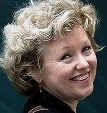By Caitlin Rother
It’s only taken me fourteen years, but
I’m proud -- and relieved -- to say that I’ve finally finished a very personal essay.
Frankly, it feels like I’ve completed an intellectual and emotional marathon.
It’s no coincidence that it took me
fourteen years. That’s how long it’s been since my husband committed suicide,
and it’s taken me that long to process and balance the emotions about my
marriage and its tragic end to a healthy enough place that I could write about
this sensitive and inflammatory topic for people other than myself to read.
Until very recently, I didn’t fully
realize that the trauma and the aftermath of these experiences were still
affecting me after all this time. I guess I should have known, because I’d
stopped and started this essay multiple times, feeling like I still didn’t know
how to finish it, or even what it was really about.
It needed to be about more than our
relationship and his death. As I tell my students, you need to know what your
story is about, but you also need to know what it’s really about – in other words, what you, as the writer, discovered
while writing it, which gets incorporated into the piece, the underlying
themes, and also what message you want to leave with the reader. I knew the
answer to none of these underlying questions until just a couple of weeks ago.
I wasn’t always planning to write
about this topic, but as a journalist who has made a name for herself writing
about heavy topics such as bizarre deaths, murder, mental illness and
addiction, it seemed fitting to others that I tell this story.
“You should write about it,” an
editor from Cosmopolitan told me back
in 2001, as we were editing a piece for the magazine about the Kristin Rossum
case, which was the topic of my first book, Poisoned
Love.
“Well, I guess I could,” I said.
It did seem like a good idea at the
time -- what better way to heal myself than to write about the medical and
psychological issues involved in my own story, to try to help and educate
others in the process. But I wasn’t ready. I wasn’t sure why, I just knew that
I wasn’t. I didn’t know where to start.
Some years later, I thought it was
time. So I sat down for several hours and wrote in longhand about the various
memories that I used to relate to people – the worst things, the most shocking
things, because there were many. There were several 911 calls, a call from
jail, a trip to the county mental hospital in the back of a police car, his numerous
trips to rehab. There was fighting, lying, fear and anger. But it all seemed
like a rant, so negative, and so one-sided.
As I discussed the idea with an
editor I was working with on one of the memoirs I was helping someone else
write about his own traumatic and emotional journey, I knew I needed to find
some positive things to say about my own, but I still found that very
difficult.
My husband was a talented and well
respected investment executive who ran the San Diego County Phoenix , Arizona
Recently, I went through some
things in my personal life that brought a lot of these emotions back up again,
and somehow, I managed to break through the paralysis that had
prevented me from finishing this story.
These events finally helped me figure
out what my essay was really about. It
was about me finally reaching the point where I realized I was still hanging on
to emotions I thought I’d already processed, and by writing about this, I was
able to deal with them, find those positive things, and balance myself to a
point where I could let go and move on.
I made some changes to the essay
and added a new ending, then showed the piece to a trusted friend, asking him
if he felt I’d truly finished this time, and resolved the issues for the reader
that I’d felt were hidden or left hanging.
As much as I didn’t want to hear this, he told me that I still wasn’t finished. That it still read like “I had my bra and panties on.” He said I needed to go deeper, reveal even more. Ugh.
As much as I didn’t want to hear this, he told me that I still wasn’t finished. That it still read like “I had my bra and panties on.” He said I needed to go deeper, reveal even more. Ugh.
He suggested that I sit down again
with pen and paper and write longhand, starting with, “I remember…”
I wasn’t sure I could face that,
but I did that the next day, and by golly, the day after that I added 1,500
words to my essay. In the following day or two, I remembered more, and added nearly
1,500 more words. The essay ended up being twice as long, far more balanced and
far more comprehensive than it was before.
I read the new portions I’d just
written aloud to another friend, and when I started to cry, unable to say those
new positive thoughts, those healing thoughts, out loud, I knew I was really
done. I had healed myself, and in the process, my essay as well.
So now that that journey is over, I
am faced with the next step, which is trying to find the right place to publish
6,000 words of this new form of writing, the literary essay, which is a whole
new challenge in and of itself for me.
But that’s never stopped me before.
Onward.
New York Times bestselling author Caitlin Rother, a Pulitzer-nominee who worked as an investigative reporter for nearly 20 years, has written or co-authored eight books: Poisoned Love, Deadly Devotion/Where Hope Begins, My Life, Deleted, Body Parts, Twisted Triangle, Naked Addiction, and Dead Reckoning. Her latest book is Lost Girls, about the murder of innocents Chelsea King and Amber Dubois by sexual predator John Gardner. For more information, please check her website, http://caitlinrother.com.













4 comments:
Shared on Fb as u amaze me and i am a
Fan sharing u with others-2nd time on my nook so excuse the mistakes-fan
Thanks so much for the kind words, Peewee54. Share away!
Best, Caitlin
Caitlin--you are so much braver than I am. I really admire you.
Thank you, Laurel. But I think you're pretty brave too!
Post a Comment